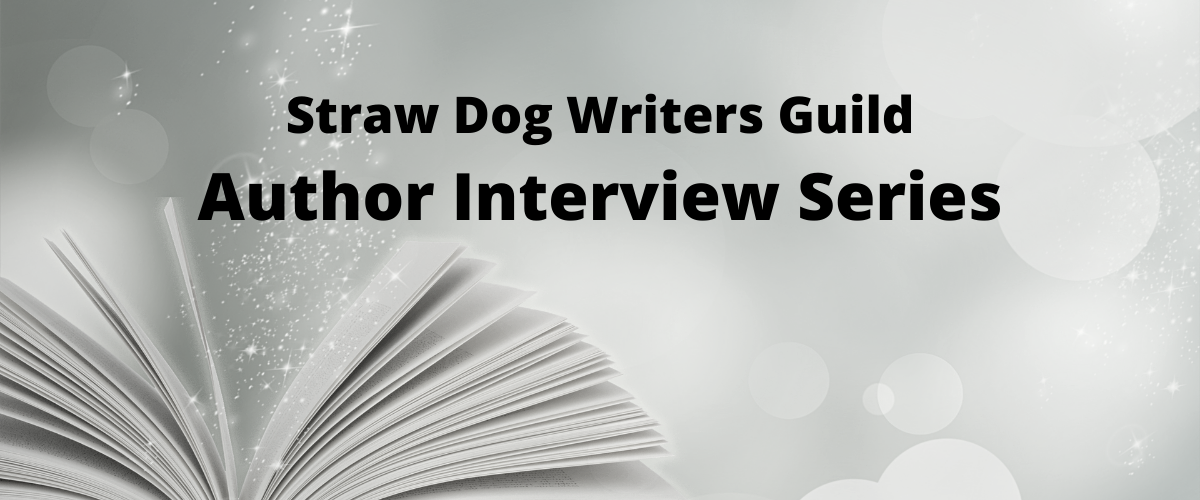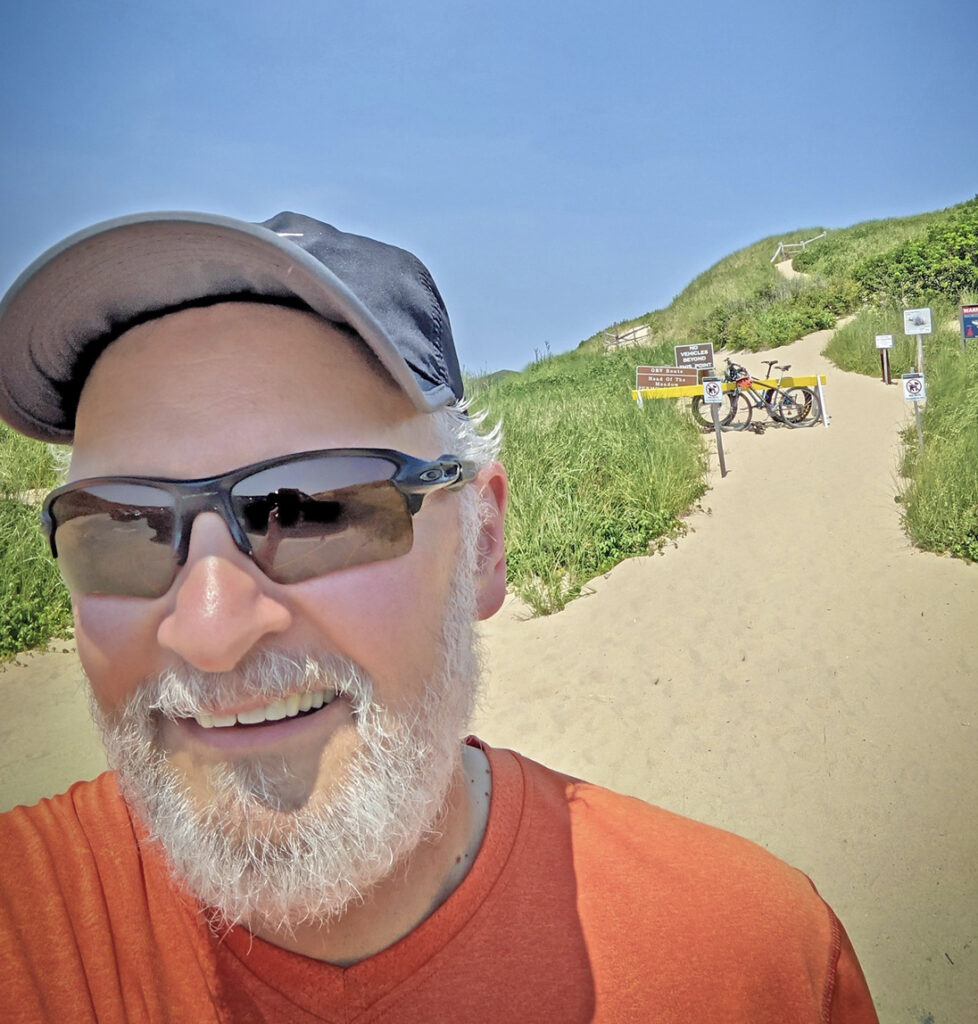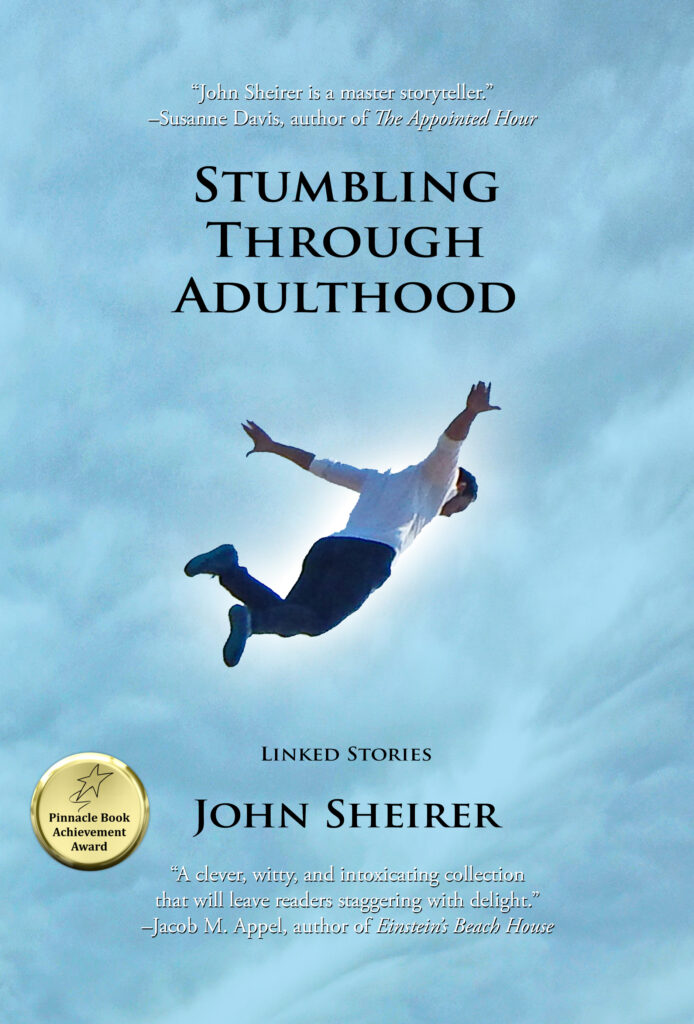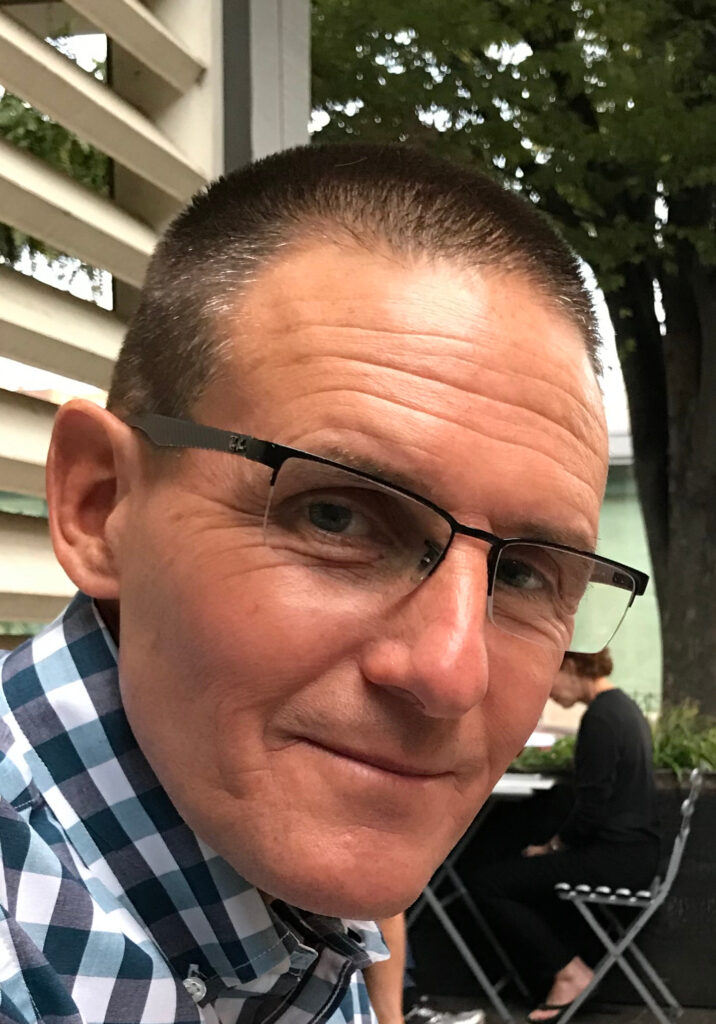John Sheirer has published works of fiction, memoir, and current events, as well as books for children. A few of his titles include Growing up Mostly Normal in the Middle of Nowhere: A Memoir (Foremost Press, 2009), Tales of a Real American Liberal (Veracity Press, 2012), and Uncorrected: A Novella (Scantic Books, 2020). His most recent book is a collection of “linked” short stories; Stumbling Through Adulthood (Janice Beetle Books, 2021). John has taught writing at Asnuntuck Community College in Enfield Connecticut for many years and he serves as editor and faculty advisor to the college’s Freshwater Literary Journal. John also writes a monthly column for the Daily Hampshire Gazette.
SDWG: You’re originally from rural south central Pennsylvania. What events or influences when you were a kid led to your career as a writer and teacher of writing?
JS: While growing up on a small farm, I felt a little left out because we didn’t have close neighbors or a town community for everyday interactions with other kids my age. But, in retrospect, that probably helped me develop as a writer because it gave me the opportunity to exercise my imagination. While I did my various farm chores, I was often on my own. So I spent a lot of time imagining situations that I might encounter, people I might meet, conversations I might have, adventures I might experience. I tried my hand at writing about those imagined scenarios as a teenager, but I was pretty terrible. With time, practice, and a wealth of real-life experiences once I became an adult, my writing improved. But those early days spent tending gardens and farm animals or cutting firewood for our furnace or tossing an endless supply of hay bales gave my mind plenty of time to build a foundation of imagination that still enhances my writing today, many decades later.
SDWG: As a student you were interested in sociology. What experiences or influences pulled you away from that science and into a literary, albeit somewhat still academic, life?
JS: I earned a college degree with a double-major in psychology and sociology, but I was told by one professor that to be a “real writer,” I should go to graduate school for English to study the masterworks of great literature. In one way, that was sound advice. The more literature I read, the more I learned that a finished literary product should be able to connect with readers. But I’ve come to realize that writing is essentially about exploring the meaning of human behavior, both personal motivation and how we interact in groups. Human behavior is exactly what psychology and sociology study, so when I develop a fictional character or analyze a complex concept in nonfiction, I draw on my social science background more than my literary background. I’ve had a very satisfying academic career teaching writing, literature, and communications, but I often wonder if my writing would have developed more if I had continued studying social and behavioral sciences.
SDWG: Everyday folks, their joys and troubles, seems to be the common focus in almost all your books. If “Characters” (both real and made-up) are your wheelhouse, as opposed to setting, plot, or other elements what makes someone a “John Sheirer Character”? Can you give us an example?
JS: The best comment about my new collection of stories, Stumbling Through Adulthood: Linked Stories, came in a blurb from award-winning fiction writer Susanne Davis. She said that my characters are, “decent, funny, and relevant to the way we live.” I’ve always thought that human beings are fundamentally “decent,” meaning that most of us have good intentions and that we like to enjoy life while doing what we can to make the world a better place for everyone. The election of 2016 and the January 6 insurrection shook that belief, but, overall, I still think fundamental human decency is more prevalent than greed, hate, and rage.
So, the vast majority of my characters could be classified as “good people” trying to do the “right thing” most of the time. They might fall short of their aspirations, and some of them might lean farther toward the “dark side” than we’d like to find in a next-door neighbor. An example of a “good person” would be Arthur, the protagonist of the first story of Stumbling Through Adulthood. Arthur tries to help someone in need, despite not really knowing what the need is. And he realizes that he might even be risking his own safety by trying to help. But Arthur reaches out to do the right thing, and that’s what I hope for with all the characters I encounter; both literary and flesh-and-blood.
Something else that I try to do with my characters is tap into empathy to reach beyond my own experiences. I’m straight, cis, middle-aged (okay, advanced middle-aged), white, male, American. Some protagonists in my stories also fit that profile. But many are gay, women, teenaged, elderly, black, Hispanic, or from other countries. I’ve really listened to people who are different from me over the years so that I can learn from them and empathize with their experiences. I can’t fully know what it’s like to be a gay man coming out to his twin brother or a young woman facing career pressures or a black man exposed to possible danger in public or a Muslim woman facing discrimination; but I can touch those experiences through writing fictional characters who live those lives. I strive to avoid cultural appropriation by presenting those characters as developed, well-rounded human beings who aren’t completely defined by their demographics any more than I am by mine. And I hope to bring to those characters what I’ve seen in the vast majority of human beings I’ve been close to in my life: fundamental human decency.
SDWG: Your newest book is a collection of “linked” short stories. The term makes me think of other writers who have created a web of characters in a common setting and who appear or reappear in each other’s particular narratives. Anderson and Faulkner are examples, but myths from various cultures and superhero stories do this too. Can you describe, with maybe a teaser or two, how these links work in Stumbling Through Adulthood?
JS: I’ve struggled with how to describe “linked stories.” The best I could do for a while was to say that the main character in one story might surprise us and show up as a minor character in another story. But when I was on The Bill Newman Show on WHMP radio, Bill’s co-host, Monte Belmonte, gave the structure a perfect analogy. “It’s like the Marvel Universe!” Monte said. He’s absolutely right. But instead of superheroes facing extraordinary situations, the characters in Stumbling Through Adulthood are regular people facing the extraordinary implication of ordinary situations.
Some examples from the book include a couple who almost get together in college, live separate lives, and then reunite decades later. And this couple’s life eventually intersects with a young man whose life takes a tragic turn, while another young man living in a nearby neighborhood sees his life change profoundly for the better. Plus, one young man’s sister is the other young man’s teacher. And the siblings of the woman in the couple appear in another story where they hike through the woods and discuss their preferences for end-of-life care while their much healthier spouses sprint ahead along the trail. These examples represent about three percent of the connections throughout the book. It makes The Avengers seem simple.
Another way of thinking about the complexity of linked stories is that they’re just like real life. When your high school crush friends you out of the blue on Facebook, whole worlds open.
SDWG: Many writers, even those with an established career such as yours, have a fairly prescribed range of subject and genre. Your work is not just prolific, but relatively speaking (and I mean this as a compliment), all over the map: journalism, short stories, flash fiction, memoir, kids books, – current events and politics, coming of age, rural life, dogs, the writing process… What draws you to a particular subject at a particular moment? What tilts you toward a given form for that subject?
JS: Some situations are limited to a specific form of writing. For example, my monthly newspaper column is nonfiction that explores the implications of current events. Typically, I wouldn’t write a science fiction story for my column. True confession: Once I actually did write a science fiction story for my column. Another time, I wrote a historical fiction allegory. And there was the time I wrote a case study similar to what you might find in a management textbook. In other words, I sometimes experiment.
To answer the question more directly, I’m drawn to lots of different forms of writing because I read widely across forms. Recently, I’ve been drawn to reading short stories for pleasure and as inspiration for my own stories. I spent a few years focused on very short stories, or flash fiction, but then moved toward longer stories. Years ago, I read almost exclusively memoirs. I had a period when I read only science fiction. Another period was focused on novels for adolescents and teenagers. And I’ve always read nonfiction focused on current events and politics. Sometimes these reading and writing preferences have to do with what courses I’m teaching, but often, I’m just intrigued by what people out there in the big world are writing and thinking and living and how their words might connect with my own.
In a practical sense, I often start an inspiration that lends itself to a specific form. A focused scene with a confined setting might call for a 100-word story (a form of flash fiction known as a “drabble”). A connection between something I experienced as a teenager and a current political issue might prompt a memoir piece or personal essay. Overall, I like to be open to where the inspiration leads me. An idea that I thought might make a full novel recently led to a “drabble” about a young woman Uber driver who takes a man to the hospital for routine surgery who then dies and leaves her all of his belongings. I jammed a lot into the 100 words of that story. Maybe someday I’ll reshape it into that novel that I had in mind when I first thought of the idea. Maybe after I retire!
SDWG: How do you use your work in one subject area, or genre, say crime fiction, as an influence in another, say your columns for the paper? How do they overlap or benefit each other?
JS: I consciously bring the techniques of one type of writing to bear on other types. When I write a nonfiction essay about current events, I enjoy presenting conversations and conflicts just as I would in fiction or memoir. My writing for children incorporates bits and pieces meant to be appreciated by adults as well. And much of my memoir touches on the political forces I consider for my nonfiction. And my favorite way to cross genres is bringing current events into fiction. For example, after the 2016 election, I wrote a novella called Donald Trump’s Top Secret Concession Speech, which mixed a fictionalized confessional rant by Trump with actual facts about his life and campaign. That’s the least subtle way that I’ve incorporated current events into fiction. Usually, it takes the form of developing a character who’s just slightly but significantly influenced by political forces.
In the end, we’re all influenced by what’s going on in the real world and our imaginations. And good writing is good writing. Mixing techniques and strategies can enhance any type of writing.
SDWG: In our earlier conversation, you said the time that you can devote to your own writing is somewhat restricted because of your commitments as a teacher. I have two questions about this: First, how have you managed to be productive in spite of these restrictions – how have you streamlined or made your process more productive? Second, how do your two professions help or compliment each other, i.e., how does being a teacher of writing make you a better writer and vice versa?
JS: I’m grateful that I’ve been able to put a substantial amount of writing out into the world, but I always wish I could be more productive. My teaching career has been a blessing that’s helped me provide for myself and my family, but it’s definitely not the stereotype of a professor musing throughout the day and occasionally stumbling into an ivy-covered building to lecture a few seminar students. I teach five courses each semester at a community college, and all of them are online again this semester. And I chair our Faculty Council while doing other committee work and projects. I love my job, but it definitely makes me scramble to fit writing time into my work schedule.
Sometimes I call myself an “episodic” writer because I’ve been able to take advantage of opportunities for writing episodes–whether the episode is five minutes before going to class, an hour at bedtime, or a week between stacks of student assignments to read. And I’m at the stage of my career when I’m much closer to retirement than to my first time teaching a class. I’ll still teach part-time when I retire, but my plan is to structure my life so that the writing episodes are longer and more frequent.
SDWG: When we talked earlier, you said you’ve been focusing on fiction (and your nonfiction columns) recently. What are you working on now? What’s coming up? Any appearances or readings – aside from your Fall classes of course?
JS: The amazing thing about a monthly newspaper column is that the darned deadline keeps coming back again every month, month after month! That’s been my main writing outlet for the past few months since Stumbling Through Adulthood was published. I’ve also been tinkering with another book for kids featuring photos of my dog Libby, drafting some flash fiction, and sketching out ideas for longer stories. But this semester has felt more intense than most of them in the past. Even though I’m teaching online, I still have lots of on-campus responsibilities, so the combination has limited my writing more than I thought it would.
And I’ve been focused on promoting Stumbling Through Adulthood. The publisher, Janice Beetle Books, has been more active in marketing the book than most of my previous publishers, and I’ve been pitching in as much as I can to make sure that word about the book gets circulated. I’ll never be a best-selling author, and that’s okay. But it’s gratifying to see that the early numbers for Stumbling Through Adulthood are good. I don’t do as many in-person events as I did before the pandemic, but I’ll be doing some community, library, and online events in the months ahead. The best place to follow these events is on my website. I’m always thrilled to see old and new friends when I read from my books!
Contact and Access:
A Profile of John and Stumbling Through Adulthood from his publisher: Janice Beetle Books
John’s website, with email access, a series of videos and articles, and purchasing links to his books: johnsheirer.com
*******************************************************
Interviewer: Mark Luebbers, Straw Dog Writers Guild member
Mark Luebbers is a teacher and writer living in Greenfield, Massachusetts. His work focuses on nature and the environment, the lives of eccentric and creative figures from history, and living in America. Mark has published poems in a number of journals and magazines in recent years, including The American Journal of Poetry, The Journal of Americana, Wayfarer Magazine, Apple Valley Review, Blue Line, and The Hopper. In 2018, Mark was nominated for two Pushcart Prizes. “Flat Light”, his first collection, was published in 2020 by Urban Farmhouse Press. “Citizens of Ordinary Time”, a collection of biographical and ekphrastic poems written in collaboration with Ben Goluboff, is forthcoming, also from UFP.



